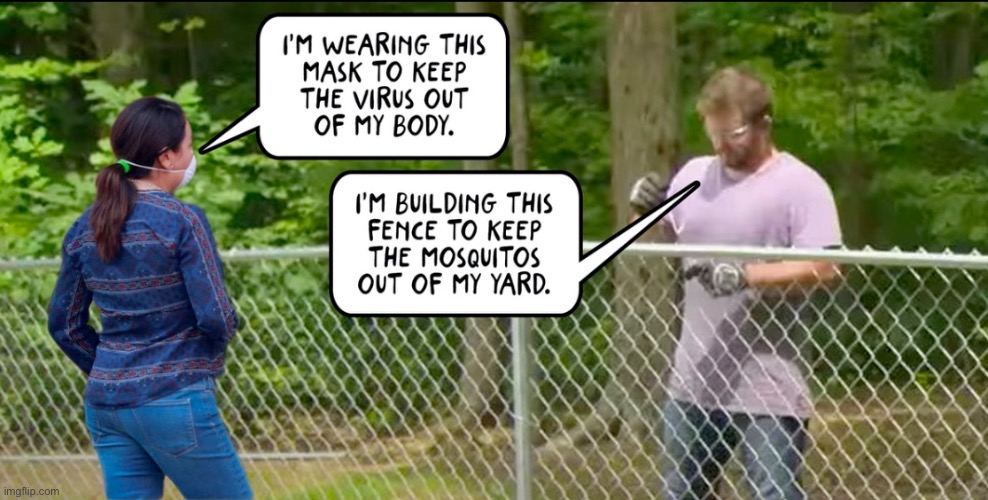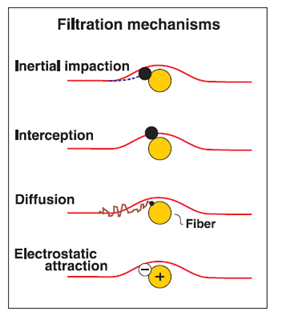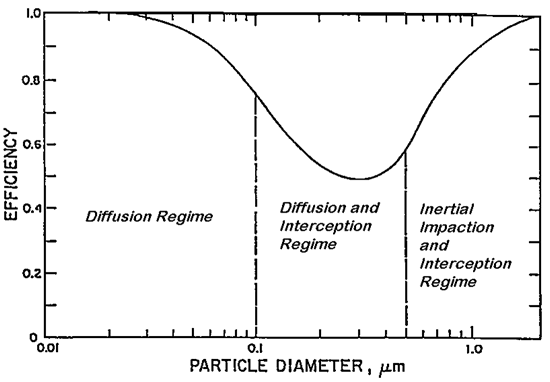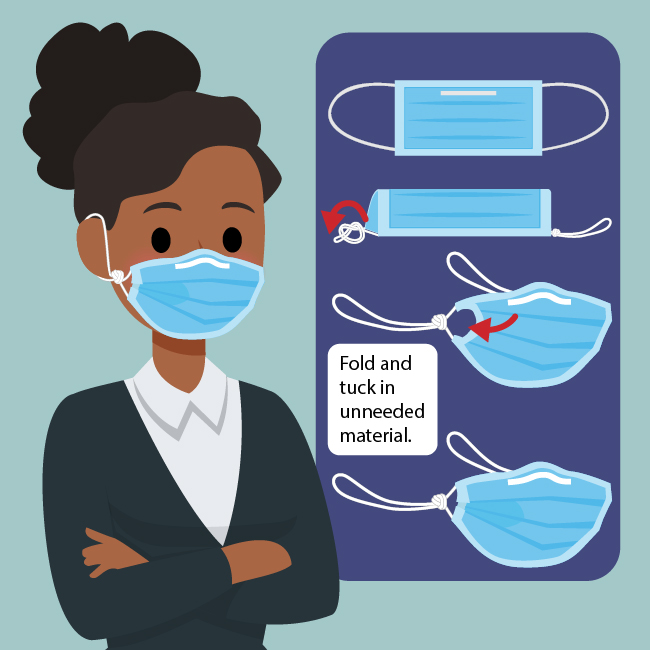Dean Kearns
New Member
Recently, I've been sent some videos as evidence that facemasks do not act as an effective means to stop the spread of a virus. The videos show a person perform a demonstration using vape smoke. The implication is that since the vape smoke passes through the mask, and viral particles are of a similar scale to smoke particles, masks are therefore pointless.
TL;DR: As a visual demonstration of mask effectiveness, this is misleading. The vape smoke introduces billions and billions more particles, in a single saturated breath, than would be exhaled during normal breathing/talking/singing/ or even a cough. Viral particles are spread via respiratory droplets, which are mostly caught in the mask. The representation in the video is showing 107000+ times MORE vape smoke particles per exhaled breath, than is analogous to a single cough. Respiratory infection doesn't work the way these videos imply it does, otherwise everyone would catch all airborne viruses constantly. Everyone in the world would have caught Covid for example, yet they have not. Viral inoculation load is of high significance with regards to severity of infection. The masks act as a very real force multiplier when combined with social distancing.
"Smoke through mask" Video example |
Source: https://www.youtube.com/watch?v=CmC0h819OV8
(3×10^9)x500 = 1.5x10^12 respiratory particles per breath
14000000 is 0.00093333333333333% of 1500000000000.
In other words, how different does this visualization look if the smoke particles per exhaled breath, are reduced by 99.9990666667%?
Or, another way of looking at it is, the representation in the video is showing 107000+ times MORE vape smoke particles per exhaled breath coming out of his mouth than is analogous to a single cough, which itself is much less than just breathing. (Breathing is apparently only about 100 respiratory particles per breath according to Wikipedia but I couldn't get access to any decent articles confirming this. Use 100 instead of 14000000 in the calculation and this visualization becomes even less analogous by a factor of 140000) <---*help needed with source or correction*
Respiratory droplets of various sizes (which are what hold the viral particles) are mostly caught in the mask and prevented from spraying the air in front of you.
Smaller respiratory droplets carry dramatically less viral load than larger droplets.
Drastically reducing these daily nodes of transmission, has a very real effect on the infection rate. If it worked the way these anti-mask videos imply, we'd all catch the flu (and every airborne disease) every time it made any sort of mutation or as soon as our immune system forgets the chemical signature over time.
The masks act as a very real force multiplier when combined with social distancing. They're to shift the balance as much as possible.
TL;DR: As a visual demonstration of mask effectiveness, this is misleading. The vape smoke introduces billions and billions more particles, in a single saturated breath, than would be exhaled during normal breathing/talking/singing/ or even a cough. Viral particles are spread via respiratory droplets, which are mostly caught in the mask. The representation in the video is showing 107000+ times MORE vape smoke particles per exhaled breath, than is analogous to a single cough. Respiratory infection doesn't work the way these videos imply it does, otherwise everyone would catch all airborne viruses constantly. Everyone in the world would have caught Covid for example, yet they have not. Viral inoculation load is of high significance with regards to severity of infection. The masks act as a very real force multiplier when combined with social distancing.
"Smoke through mask" Video example |
Source: https://www.youtube.com/watch?v=CmC0h819OV8
- The average tidal breath is 500 cubic centimeters. (Source: https://www.ncbi.nlm.nih.gov/pmc/articles/PMC5299792/)
- Aerosolized cigarette smoke is about 3 × 10^9 particles per cubic centimeter. (Source: https://www.sciencedirect.com/science/article/abs/pii/0095852260900374)
- Average respiratory particles per cough is 14000000. (Let's go with a cough rather than breathing to massively strongman the anti-mask argument). This number is taken from the sum of values on this graph: (Source: https://www.researchgate.net/figure...-size-category-1-mm-per-second_fig3_221902803)
(3×10^9)x500 = 1.5x10^12 respiratory particles per breath
14000000 is 0.00093333333333333% of 1500000000000.
In other words, how different does this visualization look if the smoke particles per exhaled breath, are reduced by 99.9990666667%?
Or, another way of looking at it is, the representation in the video is showing 107000+ times MORE vape smoke particles per exhaled breath coming out of his mouth than is analogous to a single cough, which itself is much less than just breathing. (Breathing is apparently only about 100 respiratory particles per breath according to Wikipedia but I couldn't get access to any decent articles confirming this. Use 100 instead of 14000000 in the calculation and this visualization becomes even less analogous by a factor of 140000) <---*help needed with source or correction*
Respiratory droplets of various sizes (which are what hold the viral particles) are mostly caught in the mask and prevented from spraying the air in front of you.
Smaller respiratory droplets carry dramatically less viral load than larger droplets.
Certain other properties, such as evaporation time based on droplet size, also act as important variables too.the viral load of a 100 μm droplet was approximately 10^6 times that of a 1 μm droplet
(Source: https://pubmed.ncbi.nlm.nih.gov/33519041/)Furthermore, the exhaled droplets are affected by heat and mass transfer of evaporation, water fraction, salt concentration, and acid-base balance (the water fraction > 98%), which lead them to change rapidly, and the viral survival condition also deteriorates dramatically. The time required for the initial diameter (do) of a droplet to shrink to the equilibrium diameter (de, about 30% of do) is approximately proportional to the second power of the particle diameter, taking only a few milliseconds for a 1 μm droplet but hundreds of milliseconds for a 10 μm droplet; in other words, the viruses carried by the large droplets can be preserved as much as possible.
Drastically reducing these daily nodes of transmission, has a very real effect on the infection rate. If it worked the way these anti-mask videos imply, we'd all catch the flu (and every airborne disease) every time it made any sort of mutation or as soon as our immune system forgets the chemical signature over time.
The masks act as a very real force multiplier when combined with social distancing. They're to shift the balance as much as possible.
Last edited:




